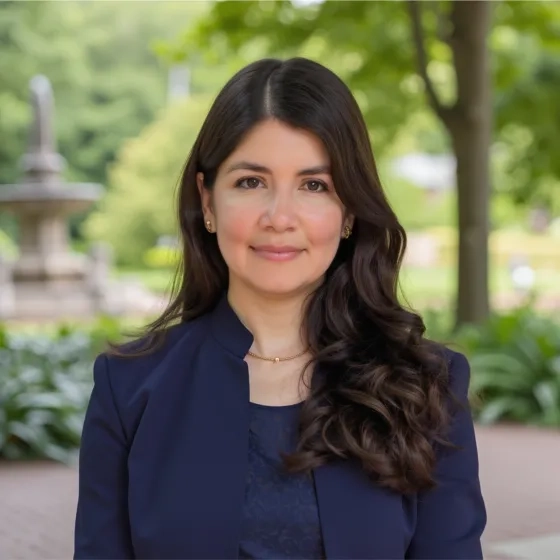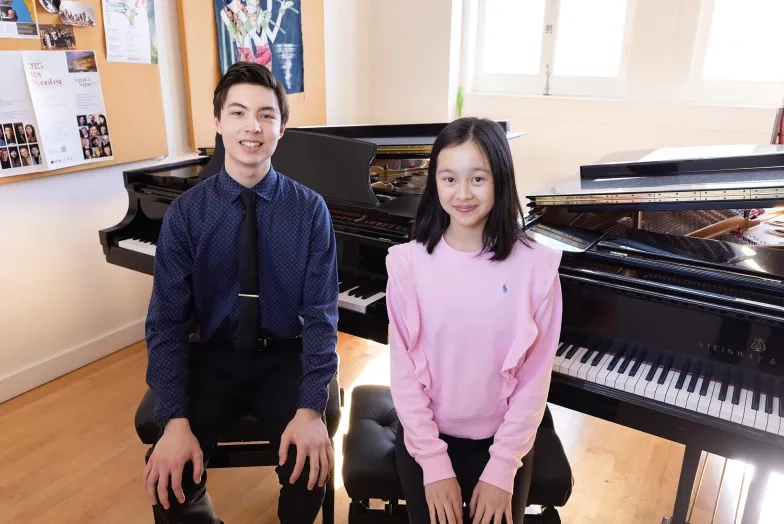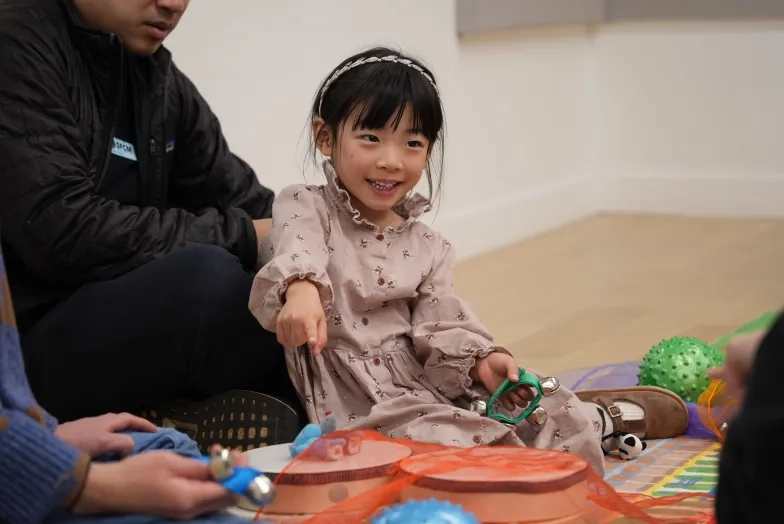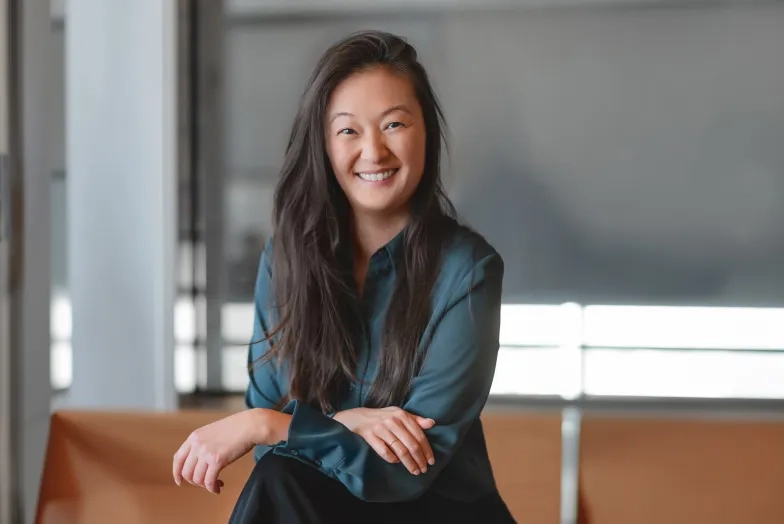Lalita Perez Acosta
- Bridge to Arts and Music

Contact
Departments
Education
PSC, San Francisco Conservatory of Music
MM, San Francisco Conservatory of Music
BM, Facultad de Música at Universidad Veracruzana
Ensembles
Golden Gate Symphony Orchestra and Chorus
SF Philharmonic
Berwick Academy Period Orchestra
Q&A
What is your hometown?
Celaya, Guanajuato, Mexico
What is your favorite recording? Why?
The Testament Records release of ""Elgar: Cello Concerto in E Minor, Op. 85,"" performed by Jacqueline du Pré with the London Symphony Orchestra, conducted by Sir John Barbirolli, is my favorite recording.
The concerto opens with a somber, introspective tone, reflecting the grief of the era, but Jacqueline du Pré’s performance brings a powerful sense of transcendence, especially in the final movement. Her playing captures an uplifting emergence from darkness—an unyielding spirit rising toward the light. This journey from despair to strength profoundly resonates with me, embodying the enduring power of the human spirit.
What are you passionate about outside of music?
Outside of music, I am deeply passionate about literature and architecture. I’m fascinated by how both reflect our history and shape our understanding of the world. Literature, with its timeless stories, and architecture, with its designs, both capture the essence of culture and resilience. I love exploring how these fields, like music, weave together the human experience and offer unique ways for communities to express their values and create lasting legacies.
Who were your major teachers?
Scott Pingel, Elisabeth Reed
What is a favorite quote that you repeatedly tell students?
Slow is smooth, and smooth is fast
What question do you wish students would ask sooner rather than later?
I wish students would ask, “How can I use music to connect with others and make a difference in the world?” Music is a powerful tool for expression, and understanding its potential to impact communities and individuals can transform their approach to learning and performance.
What was the defining moment when you decided to pursue music as a career?
The defining moment for me was teaching at Esperanza Azteca while performing with the Sinfónica de Puebla. In that moment, everything I believed about the power of music—how it can uplift, heal, and unite—collided in a way that gave my life purpose and meaning. It was clear to me that music was not only my passion but also my path to making a lasting impact in the world.
What was a turning point in your career?
A turning point in my career came when I had the privilege of studying with Scott Pingel. He lives by his teachings, and from him, I learned the importance of authenticity, kindness, and empathy in both music and life. His approach reaffirmed my belief that music and beauty can be shared with others through absolute kindness and understanding—qualities that have shaped my teaching philosophy.
If you weren't a musician or teacher, what do you think you would be doing now?
If I weren’t a musician or teacher, I believe I would be working as a doctor in a remote community. The same passion for helping others that fuels my teaching would have translated into a career dedicated to providing care and support where it’s most needed.
What is your daily practice routine?
My daily routine revolves around perfecting the fundamentals, starting with scales and orchestral excerpts. I also dedicate time to exploring symphonic works that inspire me. This routine keeps me connected to the exhilarating feeling of music-making and ensures I’m always prepared for new challenges, both in performance and teaching.
If you could play only three composers for the rest of your life, who would they be?
If I had to choose only three composers, they would be Johann Sebastian Bach, Ludwig van Beethoven, and Gustav Mahler. Bach’s compositions are timeless and foundational, offering an intricate balance of intellectual depth and emotional resonance. Beethoven’s works convey the full range of human experience with power and intensity, while Mahler’s music captivates me with its sweeping grandeur and introspective beauty. What truly speaks to me as a bass player is their masterful use of the bass line. Their bass lines are not mere accompaniment but vital, dynamic forces that drive the music forward, creating both tension and release. These composers understood that the bass is not just the backbone but the heartbeat of orchestral music. Their dedication to hard work, the pursuit of beauty, and the transcendence of the human experience through music is a constant source of inspiration for me, both as an artist and as a musician.
From a music history perspective, what year and city are most important to you, and why?
The year 1800, in Vienna, stands out to me. It marks the end of Beethoven’s life, a pivotal moment in music history where the transition from the Classical to the Romantic era began to take shape. In this city, where music was such an integral part of life, Beethoven’s final works were a profound shift toward self-expression, paving the way for future composers to define art in deeply personal, human terms.
What is your unrealized project?
I’m excited to develop a tool that integrates motion analytics with music learning, using principles from motion science to help musicians optimize their physicality during practice. This tool will be incorporated into our classes to enhance students' technique and performance.
What do you think makes a concert experience unique?
A concert becomes truly unique when there is a shared emotional connection between the performers and the audience, with the key being the intentionality behind the performance. When musicians are fully immersed and intentional in their delivery, it creates an energy that is palpable, deeply resonating with the audience.
Please list your most important collaborations.
Some of my most significant collaborations include performing with Chris Potter, Anat Cohen, and Alan Parsons. These experiences have allowed me to work with artists who have pushed the boundaries of music and inspired me to always seek innovation in my own work. Additionally, I’ve had the privilege of learning from the bass players who worked closely with them, gaining invaluable insights into their approach and artistry.
What recordings can we hear you on?
Obra orquestal de Jose Federico Ibarra, Orquesta Filarmónica 5 de Mayo.
Venus Rey Jr.: Requiem Música por la Paz, Orquesta Filarmónica 5 de Mayo.
Biography
Lalita Pérez Acosta is a dedicated double bassist and arts administrator with a deep passion for music education and community outreach. She holds a Master’s degree and a Professional Studies Certificate in Double Bass Performance from the San Francisco Conservatory of Music and a Bachelor’s degree from Universidad Veracruzana in Xalapa, Mexico. Lalita first joined the Bridge to Arts & Music (BAM) program in October 2021 as a Teaching Artist and has been honored to co-lead the program alongside Roco Cordova since January 2024. Together, they work to support and expand BAM’s mission of providing accessible, high-quality music education to young people, fostering a welcoming and inclusive environment throughout the Bay Area.
Lalita's experience includes performing with diverse ensembles in Mexico and the Bay Area and nurturing a keen interest in historical performance, which she developed through her participation in festivals such as the Oregon Bach Festival and the Viola da Gamba Society's Conclave. She is committed to creating an engaging and inspiring space for BAM’s young musicians, merging her love of music with her dedication to building community connections.
Latest News


